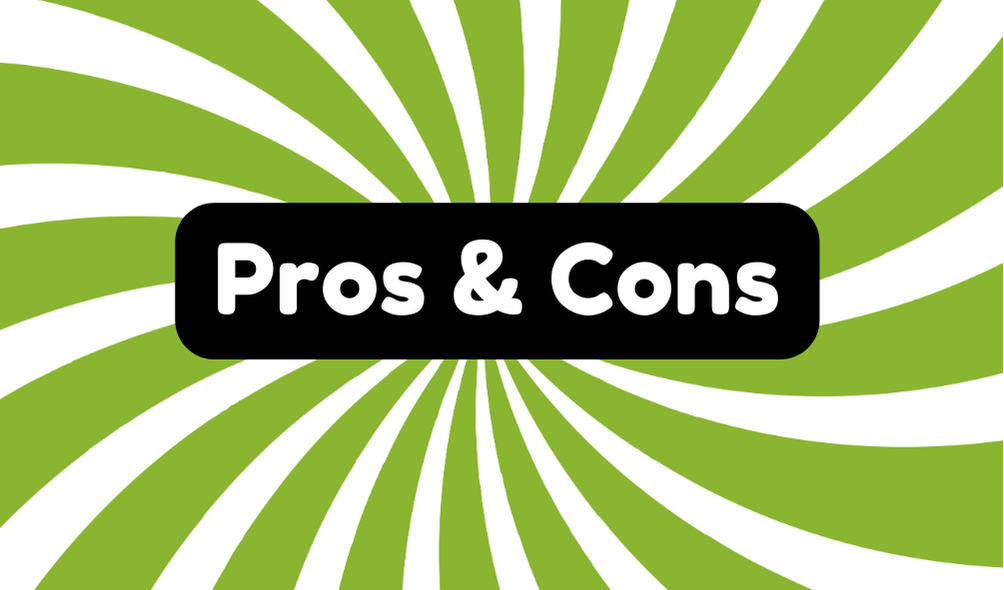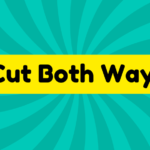"Pros and cons" refers to the positive and negative aspects of a decision, derived from the Latin phrase "pros et contras," meaning for and against. This concept has historical roots in legal discourse from ancient Rome, where judges weighed arguments before making verdicts. In everyday use, you might say, "We should consider the pros and cons of moving to a new city." Understanding these factors is essential for informed decision-making, as it encourages critical thinking about life's complexities. By examining both sides, you empower yourself to make better choices and navigate challenges effectively, revealing deeper insights along the way.
Synonyms
When discussing pros and cons, what other terms can express a similar idea? You might be surprised to learn that there are several alternatives, each shedding light on the complexity of choices. Consider these synonyms:
- Benefits and drawbacks
- Strengths and weaknesses
- Upsides and downsides
- Advantages and disadvantages synonyms
- Merits and demerits
While these terms can enrich your discussions, it's crucial to recognize that not every synonym carries the same weight or clarity as "pros and cons." Each set of terms sparks different perspectives, urging you to think critically about your decision-making process. So, as you assess situations, explore these pros cons synonyms to deepen your understanding of the benefits and challenges ahead.
Example of Sentences
To illustrate the concept of pros and cons, consider how it applies to everyday decisions. When you're faced with choices, engaging in pros and cons discussions can be key to effective decision-making. Here are some examples that highlight this approach:
- Deciding whether to go back to school
- Choosing between a stable job and starting a business
- Weighing the benefits of living in a city vs. the countryside
- Evaluating the pros and cons of adopting a pet
- Thinking about whether to take a vacation or save money
Each of these scenarios showcases how understanding the pros and cons helps clarify the situation. By analyzing both sides, you can make informed choices that align with your goals, ensuring your decisions are well considered.
Origin
The phrase "pros and cons" has been around for over a century, rooted in the Latin expression "pros et contras," which means for and against. Its historical significance can't be overlooked, especially in legal applications where this term emerged. Judges in ancient Rome used it to summarize arguments—evaluating reasons for and against a verdict. This approach rationalized decision-making in the courtroom, ensuring that no angle was ignored. Today, while we might casually toss around "pros and cons," it is crucial to remember its origins. As we navigate complex decisions, acknowledging this term's depth can enhance our analysis and critical thinking. We shouldn't simplify. Instead, we should recognize the carefully weighed aspects behind every choice we face today.
Collocations
In discussions about "pros and cons," certain collocations frequently arise that enhance understanding and clarity. These terms help navigate the complexities of decision-making, especially for students facing significant choices.
- weighing pros and cons
- presenting pros and cons
- understanding pros and cons
- exploring pros and cons
- analyzing pros and cons
These collocations are essential when evaluating pros and cons in decision making; they provide clarity amid the chaos of options. For students, exploring these collocations can sharpen critical thinking skills as they assess their choices. However, it's important to remember that not every pro or con holds equal weight—some factors may skew perspectives. By critically engaging with these collocations, you can make more informed decisions that resonate with your values and objectives.
How to Use in Everyday Language
Many people find it helpful to incorporate "pros and cons" into everyday conversations when making decisions. This approach can clarify your thoughts and help evaluate situations effectively. You could apply this strategy in various everyday scenarios, such as choosing between jobs, deciding on a new gadget, or even planning a vacation.
Here's a quick table to visualize this:
| Situation | Pros | Cons |
|---|---|---|
| Choosing a Job | Better salary, growth | Longer commute, more stress |
| Buying a Gadget | Latest features, trendy | High cost, rapid obsolescence |
| Planning a Vacation | Fun and relaxation | Costly, time away from work |
Using decision making strategies like this can enhance your ability to make balanced choices. Don't underestimate its value!
Why Is It Still Relevant Today?
Pros and cons remain an essential part of decision-making today, helping you navigate the complexities of life and work. As you face everyday decisions, weighing benefits and drawbacks keeps you grounded and enhances your critical thinking skills. In our fast-paced world, it's easy to get carried away by emotions or trends, but sticking to a balanced approach encourages smarter choices. Whether you're evaluating career moves or personal goals, considering both sides reveals insights that might get overlooked. Plus, embracing this practice fosters a more analytical mindset, empowering you to tackle challenges with confidence. Ultimately, understanding pros and cons isn't just about making choices; it's about evolving your thinking and improving how you approach each situation.







